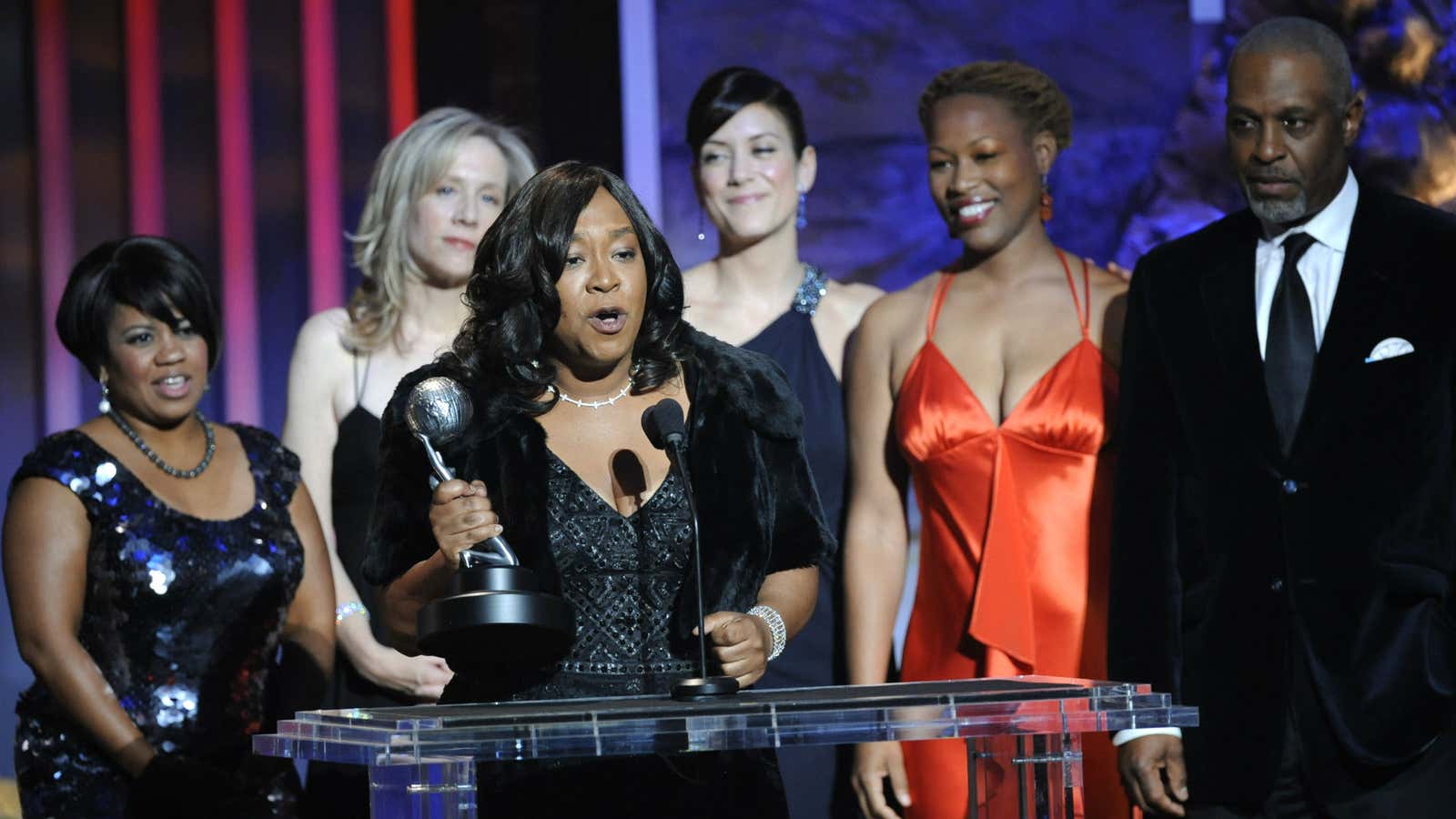Shonda Rhimes—creator of the television shows Grey’s Anatomy, Scandal, How To Get Away With Murder, and now the media company Shondaland—has built a celebrated career telling the stories of nuanced, compelling characters. She does not care for the term that’s often used to describe such characters when they are anything other than young white men.
In its stead, Rhimes advocates a term that reflects the effect of broadening the scope of inclusion: normalizing.
“Shonda really does not love the word ‘diversity,’” the actress Kerry Washington said of her boss recently at the Vulture Festival in Los Angeles. “She talks about abandoning the word ‘diversity’ and replacing it with ‘normalizing.’”
Washington was speaking at a panel with the cast of Scandal, whose characters represent a range of ages, races, and sexual orientations.
“When you’re the only woman in the room, or the only person over 40, or the only LGBTQ person, you don’t get to enter into conversations about what that looks like. But when we normalize that combination, then we get to explore what difference means and how it feels and how it lives in the world. When these people are put together in situations,” Washington said, “you’re avoiding the idea that you’re the only one in the room.”
Rhimes has voiced these concerns before. “I really hate the word ‘diversity,’” she said when accepting an award at the 2015 Human Rights Campaign Gala. “It suggests something . . . other. As if it is something . . . special. Or rare. As if there is something unusual about telling stories involving women and people of color and LGBTQ characters on TV.”
Media isn’t the only place where “diversity” falls short. It’s a word that’s been co-opted by human resource departments and frequently misused as shorthand for anyone who isn’t a white, straight, cisgendered man. See venture capitalist John Doerr’s spectacularly cringe-inducing crack at the 2015 TechCrunch Disrupt conference: “We have two new partners who are so diverse I have a challenge pronouncing their names.”
Doerr unwittingly illustrated the way that many people accustomed to calling the shots have come to think of diversity: as a synonym for “not like me.” We may contain multitudes, but no single person is diverse.
Rhimes and Washington’s comments underscore the value of widening the lens to include people who have been previously shut out. When a cast—or a board, or a company—represents the multitude of perspectives that the real world contains, the ensuing product can becomes a lot more valuable. If people who have not been previously represented are tacitly viewed as alternatives to the mainstream, or relegated to supporting roles, then the dominant narrative never changes.
